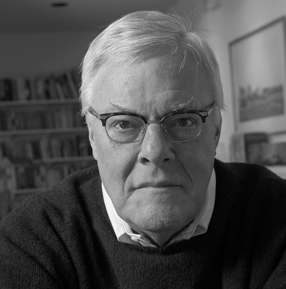Vicarious Melancholia
It fills up the space where poems used to be,
Until there’s no space left. It’s incessant
Phone calls, figuring out money and flights to
Somewhere, nowhere, not knowing what comes next:
There’s nowhere to go, which is the problem
(I think everything’s the problem) taking its toll.
Diane looked at me cross-eyed at lunch and I sunk
Into a depression I recalled from forty years ago:
The constant consciousness of helplessness;
The constant feeling of inevitability, of the anger
At that feeling; of the separateness of persons.
Talk is like drugs, repeating what I said each night
In the morning, and on the phone each afternoon:
A different hospital each time, then the same hospital.
A fear of selfishness, an imperative of self-defense:
These are the boundaries of my life now,
The borderlines of my existence for a while.
“In the midst of life we are in death.” Any
Person’s death diminishes me, and yet the fear of
Death is something one can only face alone.
Poetry is stylized indifference, a drawing back
From the divide between my life and its negation—
Not because it’s empty, but because it’s full, too full,
Full of someone else’s. Coming home each day
To the message light blinking on the phone,
My heart sinks as I press the button, and the dial tone
Comes as a relief, since I don’t know what to do.
It’s easier in miniature, within the limits of the page,
The confines of a single consciousness, with the drama
All offstage until the phone rings, and it starts again.
Copyright © 2015 by John Koethe. Originally published in Poem-a-Day on June 10, 2015, by the Academy of American Poets.
“‘Vicarious Melancholia’ was an attempt to capture some of the claustrophobic feelings associated with a difficult personal situation—I figured I might as well try to get something out of it. One model for the kind of mounting anxiety in the poem was Eliot’s prose poem ‘Hysteria.’”
—John Koethe

